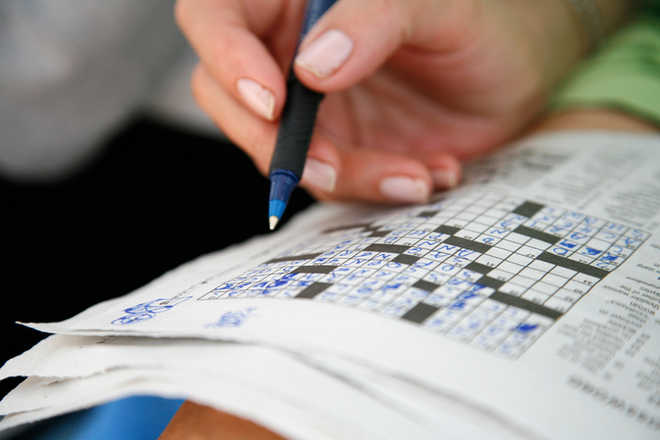
Photo for representational purpose only. iStock
London, July 17
Solving crosswords daily may boost brain function in later life, say scientists who found that people who engage in word puzzles perform better in cognitive tasks involving attention, reasoning and memory.
Scientists at the University of Exeter and Kings College London in the UK analysed data from more than 17,000 healthy people aged 50 and over, submitted in an online trial.
In research, the team asked participants how frequently they played word puzzles such as crosswords.
The study, one of the largest of its kind, used tests from the online cognitive test systems to assess core aspects of brain function.
They found that the more regularly participants engaged with word puzzles, the better they performed on tasks assessing attention, reasoning and memory.
From their results, researchers calculate that people who engage in word puzzles have brain function equivalent to ten years younger than their age, on tests of grammatical reasoning speed and short term memory accuracy.
"We found direct relationships between the frequency of word puzzle use and the speed and accuracy of performance on nine cognitive tasks assessing a range of aspects of function including attention, reasoning and memory," said Keith Wesnes, professor at the University of Exeter.
"Performance was consistently better in those who reported engaging in puzzles, and generally improved incrementally with the frequency of puzzle use," said Wesnes.
"For example, on test measures of grammatical reasoning speed and short-term memory accuracy, performing word puzzles was associated with an age-related reduction of around 10 years," he said.
"We now need to follow up this very exciting association in a clinical trial, to establish whether engaging in puzzles results in improvement in brain function," he said.
"We know that many of the factors involved in dementia are preventable," said Clive Ballard, professor at the University of Exeter.
"It is essential that we find out what lifestyle factors really make a difference to helping people maintain healthy brains to stop the soaring rise of the disease," said Ballard.
"We can't yet say that crosswords give you a sharper brain - the next step is to assess whether encouraging people to start playing word games regularly could actually improve their brain function," he said. — PTI



























